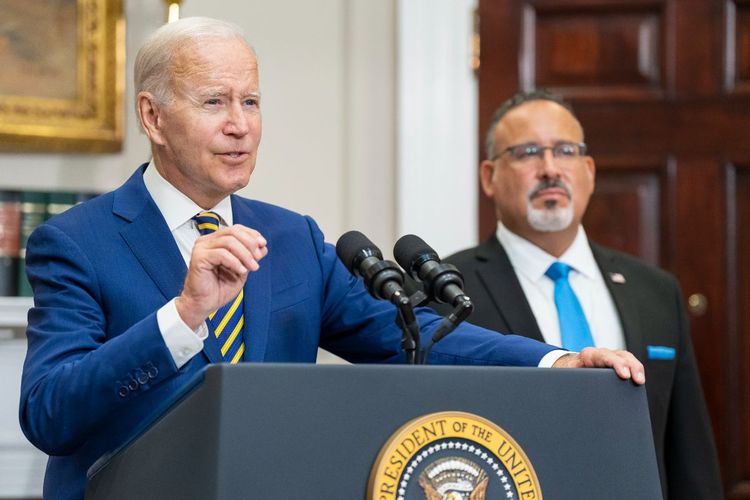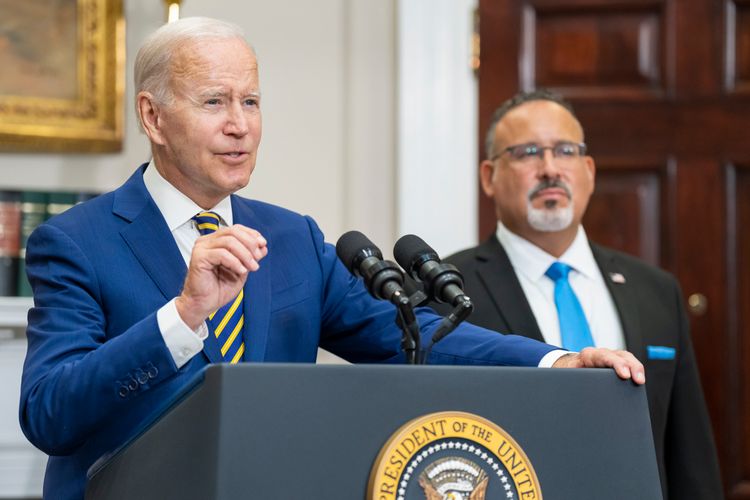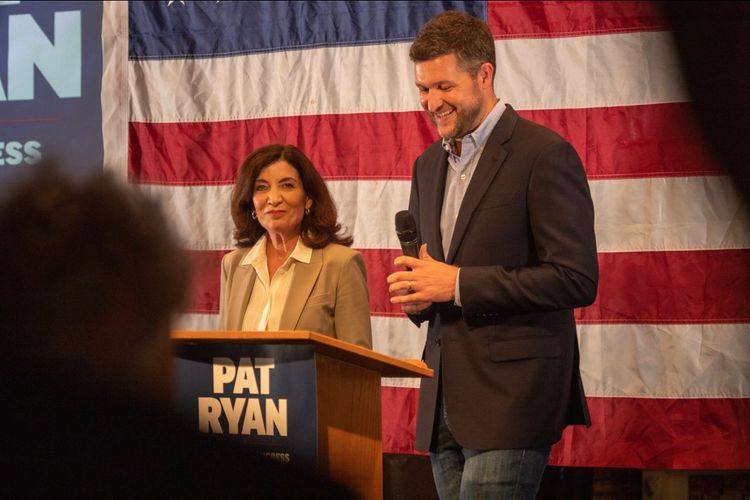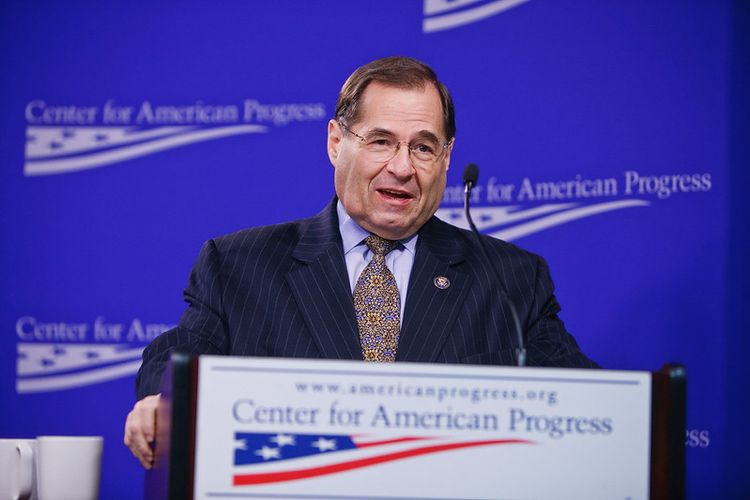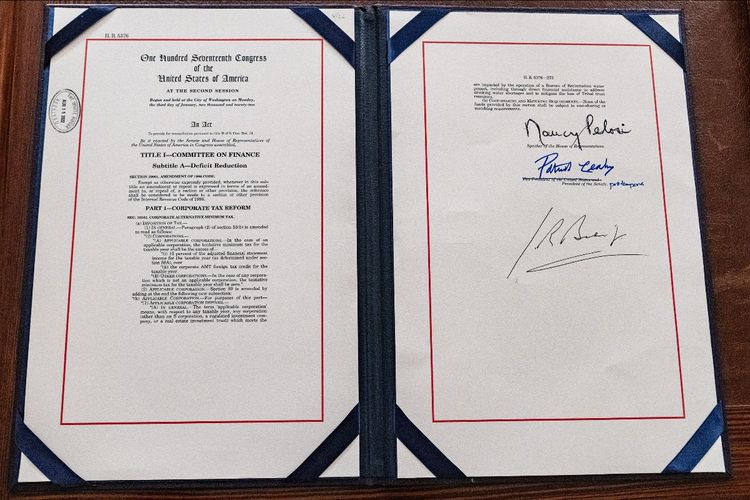Wake Up To Politics - December 8, 2020
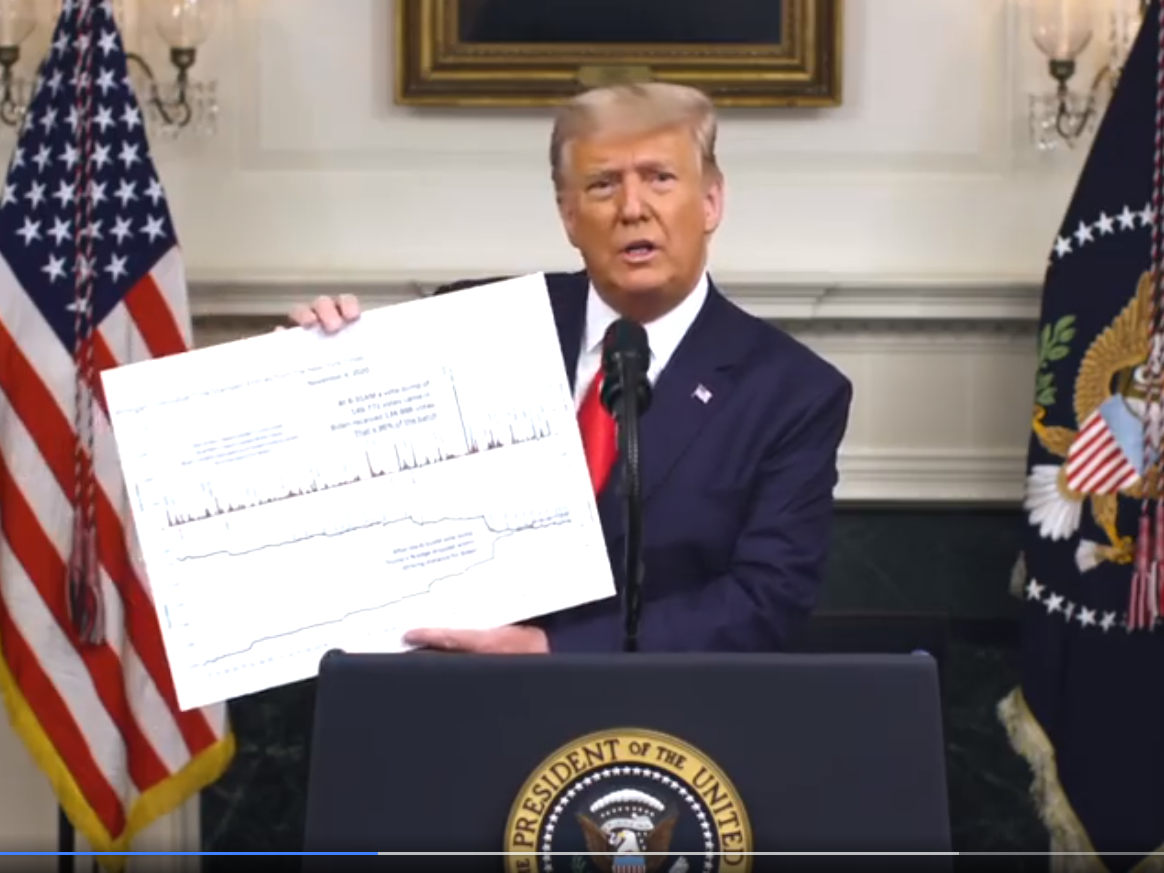
Good morning! It’s Tuesday, December 8, 2020. Inauguration Day is 43 days away. Have questions, comments, or tips? Email me.
Have friends or relatives who you think would enjoy Wake Up To Politics? Forward this email and tell them to sign up at wakeuptopolitics.com!
Trump’s election challenges crash into harbor
It has been a little more than four weeks since most major media organizations concluded that Joe Biden was elected the 46th president of the United States.
But outgoing President Donald Trump has yet to concede the race, falsely claiming that he defeated Biden and mounting several legal challenges in an unprecedented attempt to overturn the results of an American election.
Trump’s lawsuits have been met with failure again and again. The president and his allies have won only one case since Election Day, a motion to disqualify a small number of mail-in ballots in Pennsylvania. They have lost or withdrawn about 40 more, including six straight rejections from judges on Friday and two more on Monday.
The Trump campaign’s efforts will run into yet another obstacle today, as states finalize their results before the deadline known as “Safe Harbor Day.” As codified by the Electoral Count Act of 1887, if states certify the election by today — six days before the Electoral College meets on December 14 — those results are viewed as “conclusive” and are insulated from challenges in Congress or the courts.
Have all the states certified? Almost. As of this writing, 48 states have certified their 2020 presidential election results; the two holdouts — Missouri and Hawaii — are expected to follow suit today. Once they do so, Joe Biden will have won 306 electoral votes to Donald Trump’s 232. To win the White House, 270 electoral votes are needed.
Does that mean Trump’s challenges will automatically end today? Not exactly. There are still Trump campaign lawsuits working their way through the courts, and the president’s legal team has signaled they will continue plowing forward. But their challenges will largely lose any remaining legal viability after today, since the Electoral Count Act requires results certified by “Safe Harbor Day” to be accepted.
One ongoing case is in Pennsylvania, where Republican congressman Mike Kelly and other Trump allies are suing to invalidate the more than 2.5 million mail-in ballots cast in the state. The Pennsylvania Supreme Court dismissed the suit, but the petitioners have appealed to the U.S. Supreme Court, which set a deadline for both sides to file briefs by today. The justices are not expected to take up the case — although if they do, Texas Sen. Ted Cruz has said he will present the oral arguments for the petitioners.
Does the president have other routes to subvert the election outcome? Yes, but they aren’t likely to work. The next key date is December 14, when the members of the Electoral College will formally cast their ballots in each state capitol. President Trump has urged Republican state legislators in at least three states to intervene by then and designate new elector slates that would support him instead of Biden.
But he has been rebuffed each time: according to the Washington Post, Trump called the Pennsylvania House Speaker Bryan Cutler twice in the past week, but Cutler explained to him that the legislature could not change the means of choosing electors after Election Day. The president’s overtures to officials in Georgia and Michigan were also rejected.
Once the electoral votes are cast, Congress will officially count and certify them in a joint session on January 6. During the session — which would traditionally be presided by Vice President Mike Pence — lawmakers can slow down the process by challenging the results if their objection is joined by at least one House member and one senator. Several GOP congressmen plan to file objections, but no senator has committed to join them yet; any challenge would need a majority in both chambers of Congress to succeed.
So then will Trump concede? Probably not. According to CNN, “there is a sense developing” within the president’s legal team and campaign staff that their legal efforts are “coming to an end,” especially after Rudy Giuliani, who has been leading those efforts, was hospitalized with COVID-19.
But few within Trump’s inner circle expect him to ever formally acknowledge his defeat. Instead, he will likely turn his attention to a potential comeback attempt in 2024. According to Axios, Trump is considering announcing another presidential bid at a rally in Florida during Biden’s inauguration on January 20. He would be the first president since 1869 to skip his elected successor’s inaugural ceremonies.
President-elect Biden has selected retired Gen. Lloyd Austin as his Secretary of Defense. Austin, a former four-star officer who oversaw American military operations in the Middle East from 2013 to 2016 as head of U.S. Central Command, would be the first African-American to lead the Pentagon.
- Biden’s decision was first reported by Politico and later confirmed by other news outlets.
In picking Austin, the president-elect has broken with the decades-long tradition of a civilian-led Defense Department. Pentagon chiefs are prohibited from having served in the military within seven years of their appointment, although Congress can waive the proscription. Only two previous Defense Secretaries have required such waivers: George Marshall, who served under Harry Truman, and James Mattis, President Trump’s first appointee to the post.
Austin is the latest curveball from Biden after initially tapping a slate of expected picks. In his first round of personnel announcements, Biden stuck with a consistent formula: longtime advisers who had served in the Obama administration and were also the widely-acknowledged frontrunners for their respective positions.
- But the president-elect has deviated from that pattern in his latest nominations, first by selecting the controversial Democratic operative Neera Tanden to lead the Office of Management and Budget and then by proposing a Secretary of Health and Human Services Services, Xavier Becerra, who lacks medical experience.
Like Tandan and Becerra, Austin was also not the frontrunner for his position: former Undersecretary of Defense Michèle Flournoy had long been seen as the leading contender for the post. Unlike his other foreign policy and economic appointees, this trio are likely to face uphill confirmation battles if Republicans maintain control of the Senate. GOP senators have raised concerns over Tanden’s tweets and Becerra’s health care record; Austin’s path to confirmation could be complicated by the requisite congressional waiver.
Coronavirus: “Before Pfizer’s coronavirus vaccine was proved highly successful in clinical trials last month, the company offered the Trump administration the chance to lock in supplies beyond the 100 million doses the pharmaceutical maker agreed to sell the government as part of a $1.95 billion deal over the summer.”
- “But the administration, according to people familiar with the talks, never made the deal, a choice that now raises questions about whether the United States allowed other countries to take its place in line.” (New York Times)
“The U.S. Food and Drug Administration Tuesday morning released a 53-page report summarizing data from Pfizer and BioNTech's COVID-19 candidate vaccine trial. The data supports earlier findings that the vaccine is safe and will prevent 95% of people from becoming sick with COVID-19.” (USA Today)
Capitol Hill: “Congress will vote this week on a one-week stopgap measure to fund the federal government in order to give negotiators more time to reach agreement on government appropriations and emergency stimulus legislation for the ailing American economy.” (Washington Post)
Environment: “The Trump administration on Monday declined to tighten controls on industrial soot emissions, disregarding an emerging scientific link between dirty air and Covid-19 death rates.” (New York Times)
One sobering read: “‘A lost generation’: Surge of research reveals students sliding backward, most vulnerable worst affected” (Washington Post)
One wild read: “Suspected Chinese spy targeted California politicians” (Axios)
One fun read: “After Centuries of Obscurity, Wilmington Is Having a Moment” (New York Times)
Quote of the Day: “He won 117 consecutive matches and lost only 1. Well, you know, in politics, I won 2, so I’m 2-0. And that’s pretty good, too.” — President Donald Trump, falsely claiming that he won the 2020 presidential election while awarding the Presidential Medal of Freedom to wrestler Don Gable
Fact of the Day: “Of the trio of long-awaited coronavirus vaccines, the most promising, Moderna’s mRNA-1273, which reported a 94.5 percent efficacy rate on November 16, had been designed by January 13... It was completed before China had even acknowledged that the disease could be transmitted from human to human, more than a week before the first confirmed coronavirus case in the United States.” (New York Magazine)
Photo of the Day: Margaret Keenan, 90, became the first person in the world to receive the authorized Pfizer/BioNTech coronavirus vaccine this morning as the United Kingdom began to vaccinate its citizens. (Pool photo via Getty Images)

All times Eastern.
President Donald Trump will deliver remarks at the Operation Warp Speed Vaccine Summit at 2 p.m.
- First Lady Melania Trump will participate in the annual Toys for Tots Drive hosted by the U.S. Marine Corps at Joint Base Anacostia-Bolling at 12 p.m.
President-elect Joe Biden and Vice President-elect Kamala Harris will receive the President’s Daily Brief in the morning.
- They will introduce their health care nominees and appointees at an event in Wilmington, Delaware, at 1:40 p.m.
- Later, they will participate in a virtual meeting with civil rights leaders.
The Senate will convene at 10 a.m. and vote at 12 p.m. to advance the nomination of Nathan A. Simington to be a member of the Federal Communications Commission (FCC).
- The chamber will then recess until 2:15 p.m. for weekly caucus lunches.
- The Senate will vote at 4 p.m. to confirm Simington as an FCC commissioner and Stephen Sidney Schwartz as a Judge of the U.S. Court of Federal Claims.
- Sens. Tom Udall (D-NM), who is retiring, and Cory Gardner (R-CO), who was defeated for re-election, will deliver their farewell addresses at 11 a.m. and 2:15 p.m., respectively.
The Senate Homeland Security Committee will hold a hearing on COVID-19 treatments at 10 a.m., featuring testimony from Dr. Jane Orient, an anti-vaccine advocate.
The House will convene at 12 p.m. and consider the conference report for H.R. 6395, the William M. (Mac) Thornberry National Defense Authorization Act for Fiscal Year 2021. The chamber will then vote on 13 pieces of legislation:
- S. 1811, the Water Resources Development Act of 2020
- S. 1014, the Route 66 Centennial Commission Act
- S. 4902, to designate the United States courthouse located at 351 South West Temple in Salt Lake City, Utah, as the “Orrin G. Hatch United States Courthouse”
- S. 578, the ALS Disability Insurance Access Act of 2019
- H.R. 1375, the Provide Accurate Information Directly Act (PAID) Act
- H.R. 2477, the Beneficiary Enrollment Notification and Eligibility Simplification (BENES) Act
- H.R. 8161, the One Stop Shop Community Reentry Program Act of 2020
- S. 2258, the Criminal Antitrust Anti-Retaliation Act of 2019
- H.R. 683, the Puerto Rico Recovery Accuracy in Disclosures Act (PRADA) of 2019
- S. 134, the Combat Online Predators Act
- H.R. 8354, the Servicemembers and Veterans Initiative Act of 2020
- H.R. 8235, the Open Courts Act of 2020
- S. 3989, the United States Semiquincentennial Commission Amendments Act of 2020
The Supreme Court will hear oral arguments in two cases:
- Facebook, Inc. v. Duguid (10 a.m.): Congress passed the Telephone and Consumer Protection Act to ban most robocalls made from an “automatic telephone dialing system.” With the help of legal writing guru Bryan Garner, who filed a brief in this case, today the Supreme Court will parse the meaning of the robocall law.
- In briefs submitted to the Court, Facebook observes that the law allows robocalls for “emergency purposes” and for collecting debts owed to the U.S. government. As a result, Facebook argues that the government is discriminating against speech based on its content— a practice which is seldom permitted under the First Amendment.
- Lawyers for the United States defend the constitutionality of the robocall law. They argue that the government is allowed to place reasonable restrictions on the time, place, and manner of protected speech, and to them the robocall law is just another reasonable restriction.
- Henry Schein, Inc. v. Archer & White Sales, Inc. (11 a.m.): When two companies are fighting over the terms of a contract, who decides whether the case can go to arbitration? Should an arbitrator herself decide, or is that decision best left to the courts? For the second time in a year, the Supreme Court will consider these questions this morning.
— Supreme Court case summaries contributed by Anna Salvatore.
Thanks for reading! If you aren’t already subscribed to Wake Up To Politics, you can sign up and learn more here.
- You can also support my work by sending a donation, buying WUTP merchandise, or listening to my podcast.

